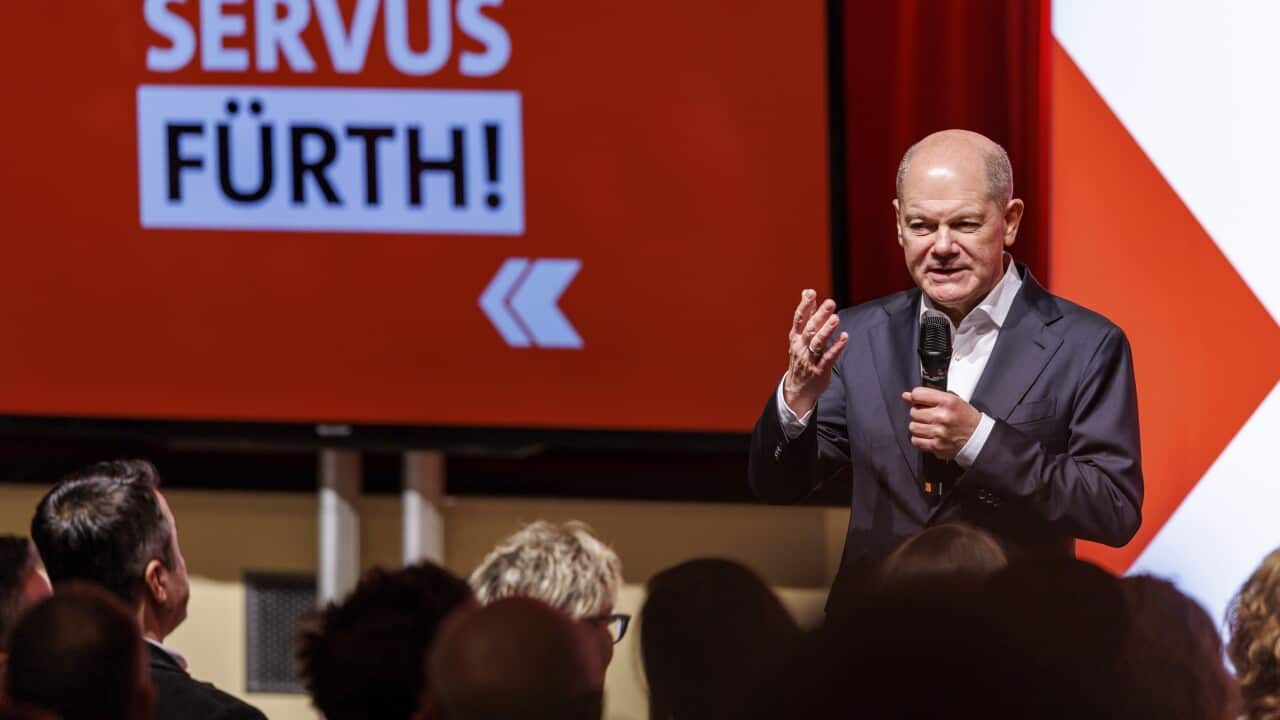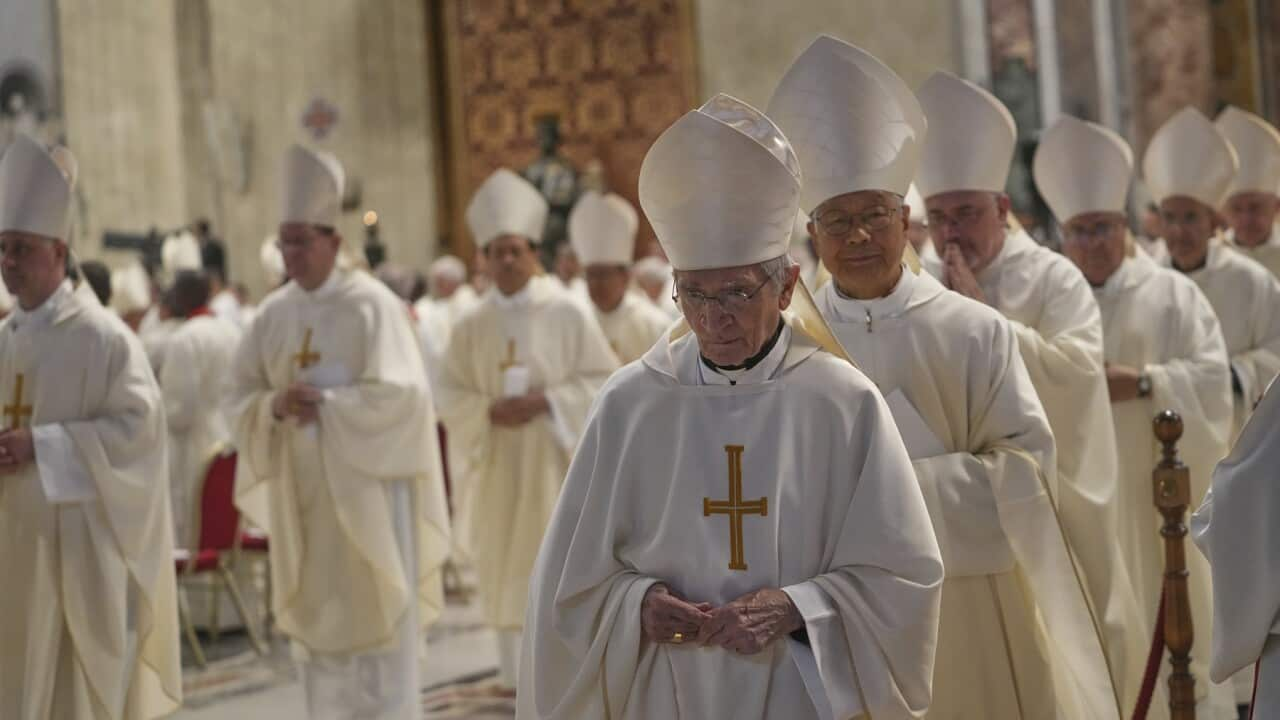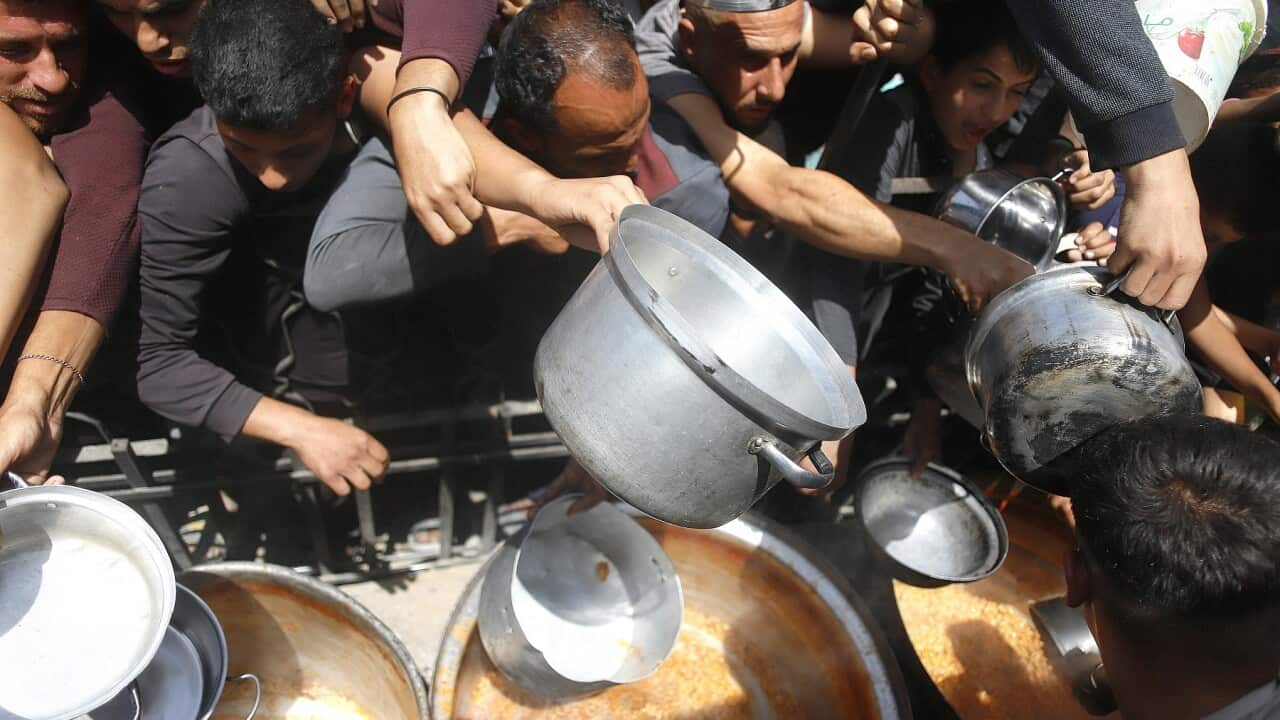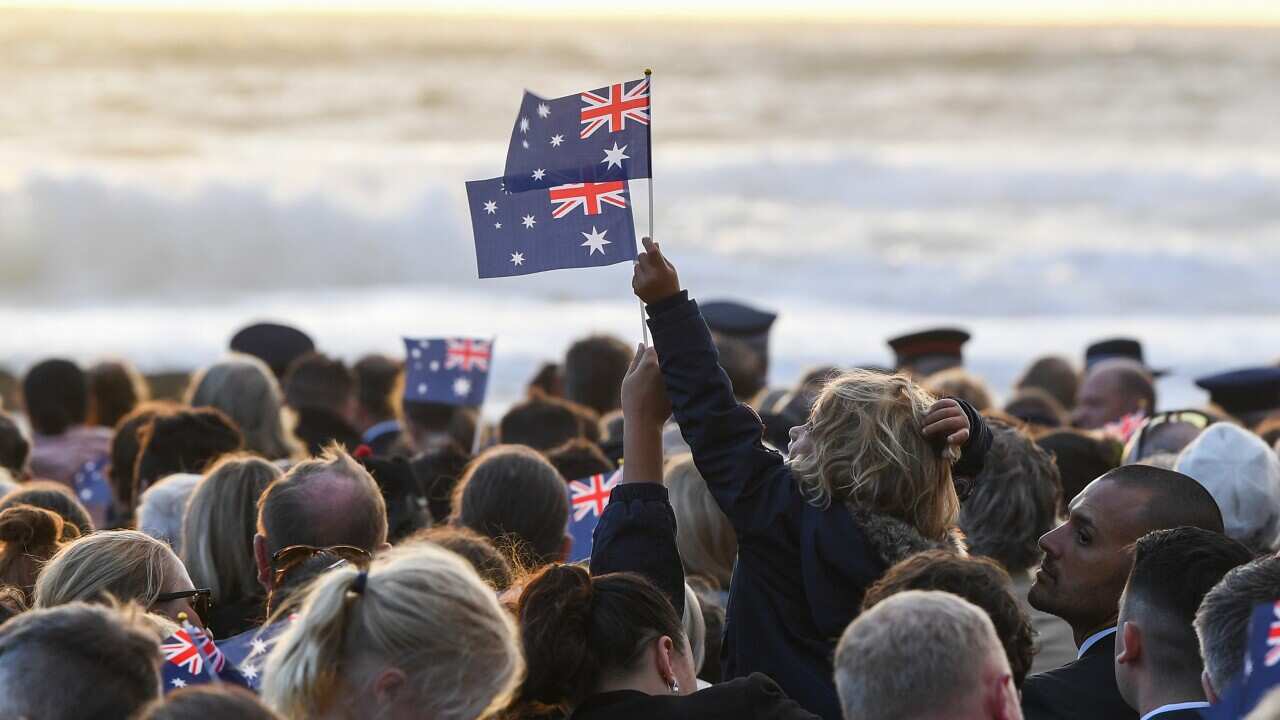TRANSCRIPT
It has been a frantic process for German Australians looking to get their ballot papers in on time for the German election this weekend. (Polls open from 8am to 6pm local time on Sun 23 Feb)
For many, the vote papers arrived this week - cutting it close for people to comply with the rules to have the ballot mailed back in time.
For Melbourne resident, Dr Andreas Dorrer, it is his third time voting in Germany's election from overseas in Australia.
"So I got my ballot and ran back to fill it out at the post office; and sent it back to Germany via courier. And I really hope that it gets there before (polls close) on Sunday. And we will have to see. But it was a little bit difficult. In previous years, it was relatively simple and relatively easy. But this year, it was a little bit rushed. It's really a little bit of a failure of the system. Because I know a lot of people in the diaspora here in Australia who are still very involved in German politics and want to execute their right to vote. And the system has let them down a little bit this year, unfortunately."
A lecturer and researcher with the University of Melbourne’s German program, he has been in Australia for 11 years - and still follows what is happening in Germany very closely.
"I don't feel any apprehension of going back (to Germany for a visit). I know I will be going back in July. And I am more sort of curious to see what the election will bring. And what the first probably by then - one or two months of the new government, how this will change the mood among the people that I meet in Germany.”]]
The consequences of this election are expected to be far-reaching for Germany and its leadership role in the EU.
Europe's largest economy, a leading member of NATO, and Ukraine’s second-largest donor of military aid, has been in recession; and cost-of-living issues have loomed large in the election campaigning.
Violent attacks involving asylum seekers have put immigration issues at the forefront of this election.
There was a knife attack in Bavaria last month; and car ramming attack in Munich 10 days out from the election.
It is something that has been capitalised upon by the AfD party that was founded in 2013. The party entered federal parliament in 2017.
Once a fringe party, the anti-immigration populist party has achieved significant electoral gains in the last year - in the European Parliament election in June 2024; and at a regional level - winning almost a third of the vote in the eastern state of Thuringia last year.
It is hoping to replicate those results at this federal election.
Matt Fitzpatrick is a Professor in International History at Flinders University, who has written several books on German history.
He says under the so-called firewall policy, parties have formed a consensus not to work with the AfD.
That was tested last month when a non-binding motion calling for tougher border and asylum rules was passed with support from the AfD. The bill was ultimately rejected by the parliament.
But Professor Fitzpatrick says it is part of a process that could normalise the far-right party and its rhetoric.
"The deep unease comes from the sense that you don't need the AfD to be part of the government for some of their policies to be legislated in Friedrich Merz government in the future. So there are concerns, particularly among people who felt the centrist direction of (former leader) Angela Merkel for the CDU was the right direction for the CDU. And of course the SPD and FDP and Die Linke and the Greens - they're all firmly opposed to the courting of the right-wing."
He says it is something that is sensitive in Germany with its Nazi past, but also something that also reflects the rise of the far-right in Europe more broadly.
"We have to look at in a broader context. On the one hand, the rise of Marine Le Pen's party in France. We have Hungary with similar tendencies. Austria, the Netherlands. All of these have similar difficulties with the rise of far-right parties in their own polities (organised society). This is, if you like, not a specifically German problem. Although, it has a very obvious German complexion to it. It is also a European problem. And coming to terms with that is going to be a pan-European project, I think, as well as a very local one as well."
Germany's federal electoral system [[using proportional voting]] makes it difficult for a single party or parliamentary group to govern alone - necessitating negotiations to form a coalition government that could take several months to complete.
Of the 29 parties on the ballot, it is likely between five and eight of will get enough votes to win seats in the 630-seat parliament, the Bundestag.
Christoph Mücher is the director of the Goethe-Institut Australia, which promotes cultural exchange between Germany and Australia.
He says there are strong feelings among voters, which he anticipates will lead to a larger voter turnout.
"It is particularly strong the interest for a couple of different reasons. Many people of the diaspora still have either the German passport or both of those passports - the Australian and the German. So they have the right to vote. Which many of them would like to do, especially in this election. International policy, international diplomacy is very agitated these days. We have a couple of horrible wars going on. And the different political parties have different stands and opinions. And also diaspora people want to be part of these elections and have their say - and have their vote."
The German community in Australia is one of the largest groups within the global German diaspora.
About 4 per cent of Australia's population - or more than a million - have German ancestry, according to the 2021 census. That includes 101,255 people born in Germany now living Australia.
He says the vote comes at a particular turbulent time - in Germany, Europe and internationally - and the election results are a factor being weighed up by Germans as they consider the future.
"The emotions at the moment are very high due to political tensions, also social tensions. And over the last week, there have been a couple of horrible incidents in Germany. A couple of them by immigrants who have been asking for asylum in Germany. And the far-right has cashed in that very strongly. So some people say we have to vote far-right to make sure that this problem is solved. Other people are very much afraid of this far-right. Obviously, in Germany this is always a very peculiar significance. So people are emotionally extremely engaged in this election."













